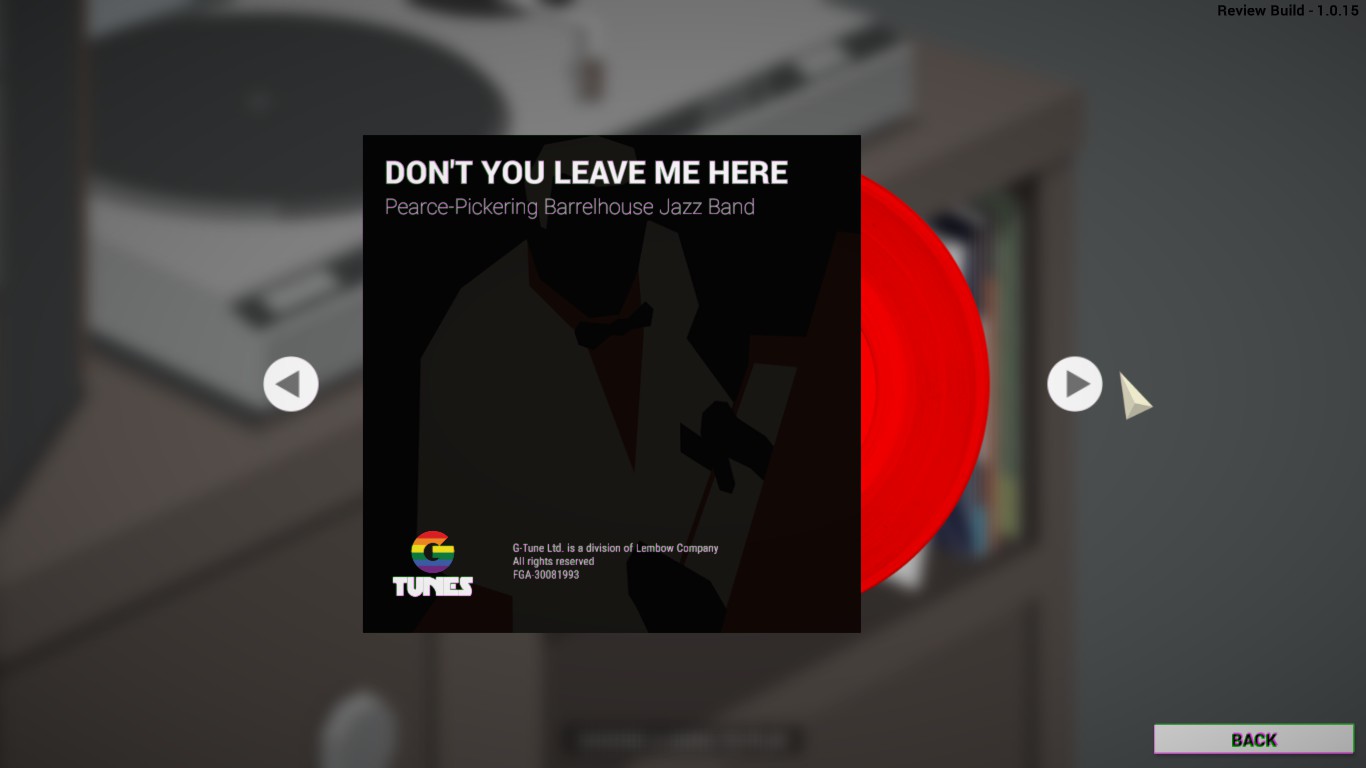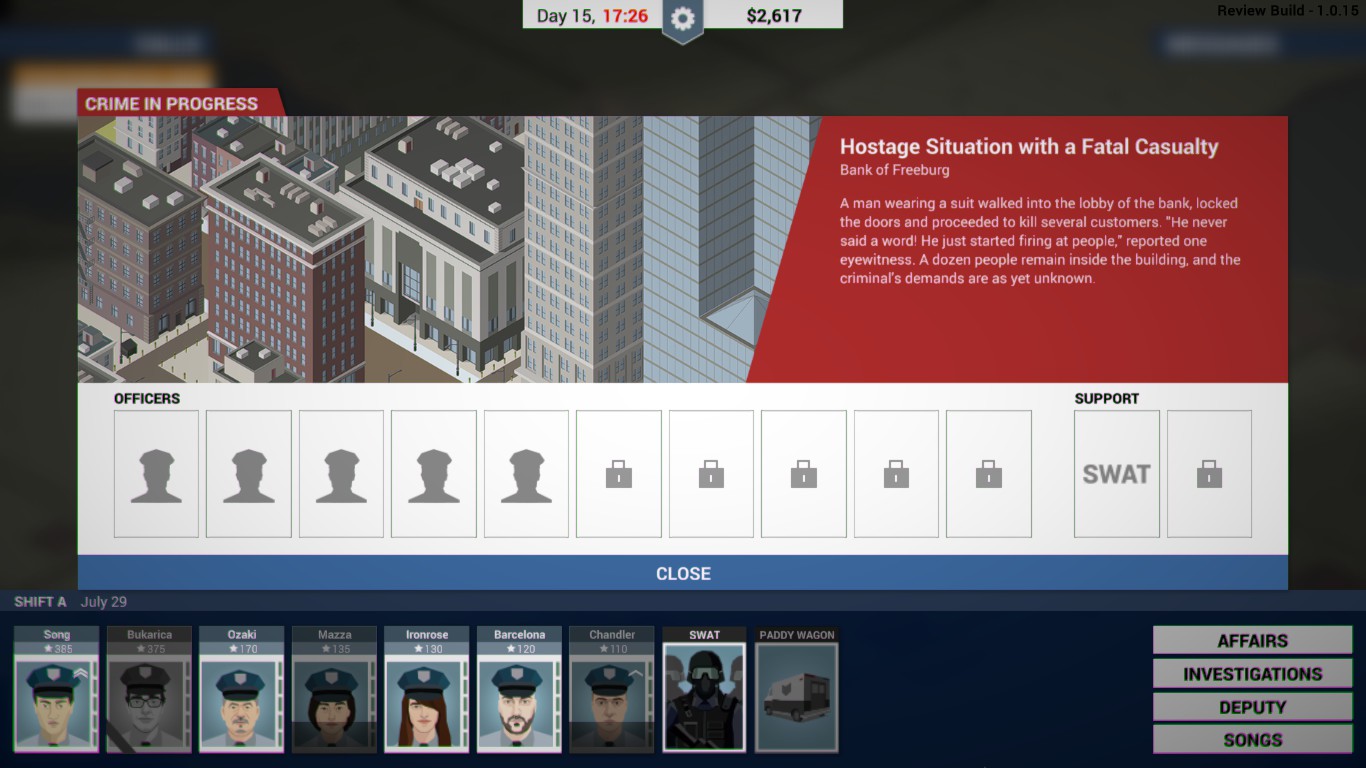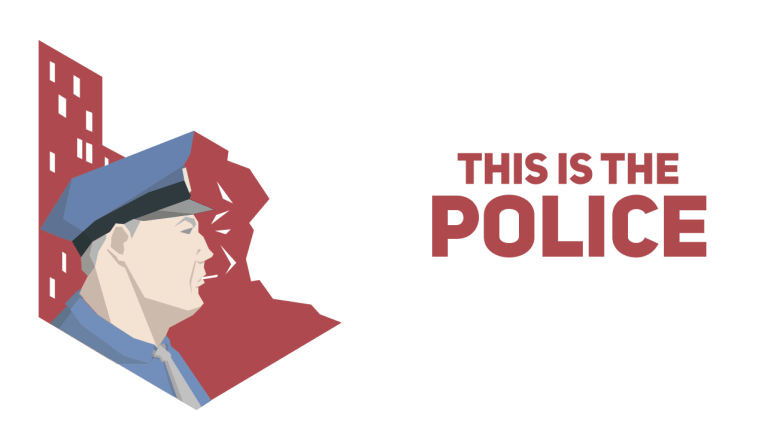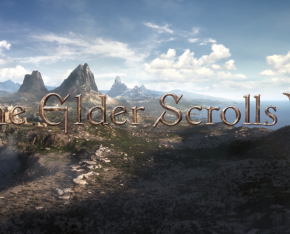By Franceen Robles on July 29, 2017 at 11:23pm
The City of Freeburg needs you. You need the City of Freeburg. You also need other things, just as other things need you.
That circle of mutuality is the gist of “This Is The Police.”
“This Is The Police” is a part visual novel, part management simulation game developed by Weappy and published by THQ Nordic and EuroVideo Medien. Players take control of Jack Boyd, Freeburg’s chief of police who is voiced excellently by Jon St. John. In this game, Boyd is being forced to retire and has 180 days to amass $500,000 for his retirement funds. Throw in the mafia into the mix, and we end up with a conundrum on our hands.
The game’s narrative is dark and gritty, presented in a series of visually-pleasing panels reminiscent of a comic book. Nobody has a face but everybody has a voice. Every now and then, players are asked to make choices during a conversation, the consequences of which are non-existent. In between cutscenes are swaths of management gameplay.
Managing your police force is really the foundation of this game. As the city’s police chief, you take care of assigning your squad to respond to various situations, ranging from a simple domestic disturbance to a complex bank robbery situation. Sometimes you also have to tell your squad how to handle the situation, which could result in either a successful apprehension or some downed officers. The juggling of various responsibilities and obligations become apparent very early on, and it can shape your experience later down the line.

Running Freeburg’s finest also turns out to be the game’s Achilles heel. Story cutscenes are far and few in between, leaving players with long stretches of personnel management. Each day only lasts for a few minutes, but it drags on for too long. Even the clever option of being able to change your background music while working only helps for a bit. Each cutscene feels like you're looking at the finish line of a long and grueling marathon - it glimmers with hope and provides a moment of respite. Except you’re not really finished and you still have to keep going.
The other pain point for the management sim is that it provides so little options for you to feel as if you’re progressing, yet it throws so many Godzilla-sized monkey wrenches at you. Every week you have an option to ask City Hall to give you mundane human resource needs such as more personnel and salary, which helps a lot if you’re in the position to get approved. However, your employees are just as likely to either make a sob story to go home or just not show up at all. You do have the option of fattening them up by hosting a barbecue party for them, but that costs money. And depending on how the random number generator deities feel about you, you may end up managing a day with three officers and six robberies.

Perhaps the most pleasant experience during the management session is when your squad asks for your advice on what to do. There will be instances where they don't quite know how to approach the situation, and it's up to you to decide how to handle it. There's usually an options to either handle it peacefully or end the interaction violently, and depending on what you choose it could either help your reputation with the City Hall or end up losing personnel. It's usually the small moments like these that help make you feel as if you're truly making a change in Freeburg.
Additionally, players also don’t have to do the entire 180 days to finish the game. There are quite a few instances where the game skips a certain number of days because of story-related reasons. This is more apparent near the end of the game, where cutscenes are more common and choices start to matter . . . or does it?
And herein lies the game’s biggest flaw: its story pretends to give you choices when in reality, it doesn’t. Some players have faced game overs because they did not take the prescribed path. It would have been perfectly acceptable if this path actually mattered in the entire plot or showed an alternate ending, but it didn’t. It was swept under the rug for the latter half of the game, never to be mentioned again. And the game’s actual ending? It was a bittersweet one that neither satisfies nor infuriates. It leaves too many questions unanswered while also making you feel as if you saw it coming.
Ignoring the social parallels, “This Is The Police” is a game that had great production but not so great execution. It far exceeds its welcome with a management simulation that asks you for more than it gives. The voice acting might be great, especially Jon St. John’s performance, but it falls just a wee bit short in making up for the game’s flaws. If you truly want to play the game, be sure to take breaks. “This Is The Police” might break you, just like how Freeburg broke Jack.









